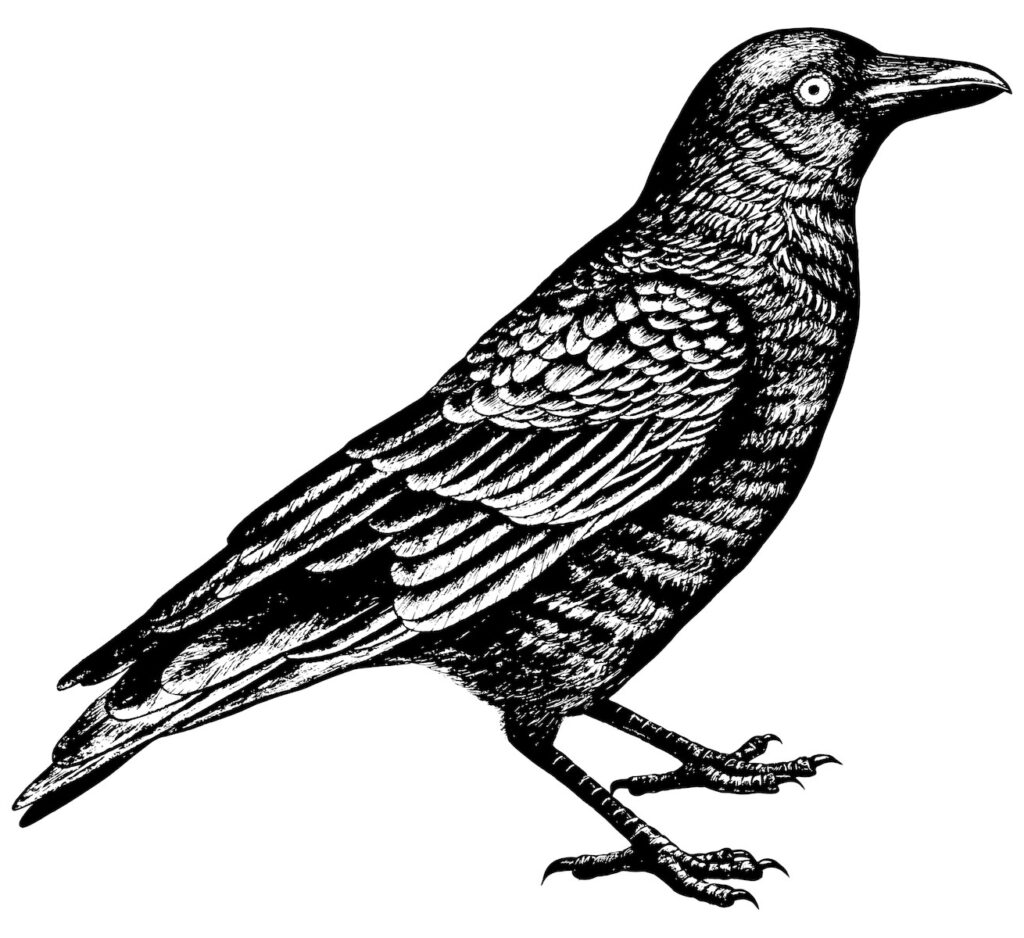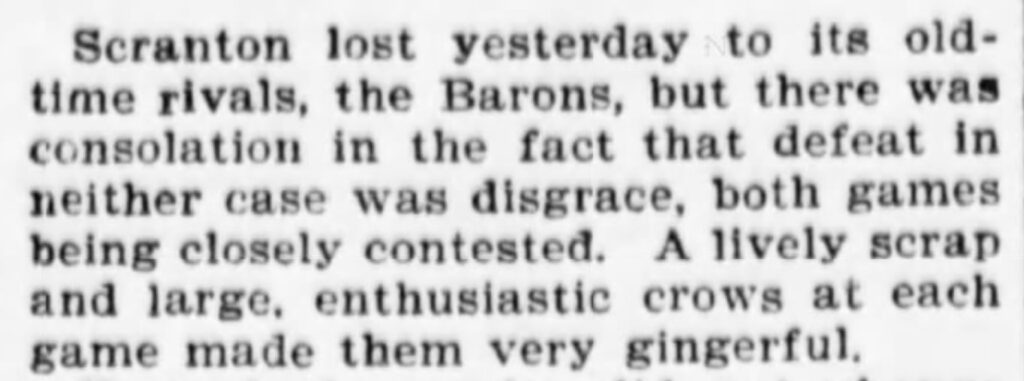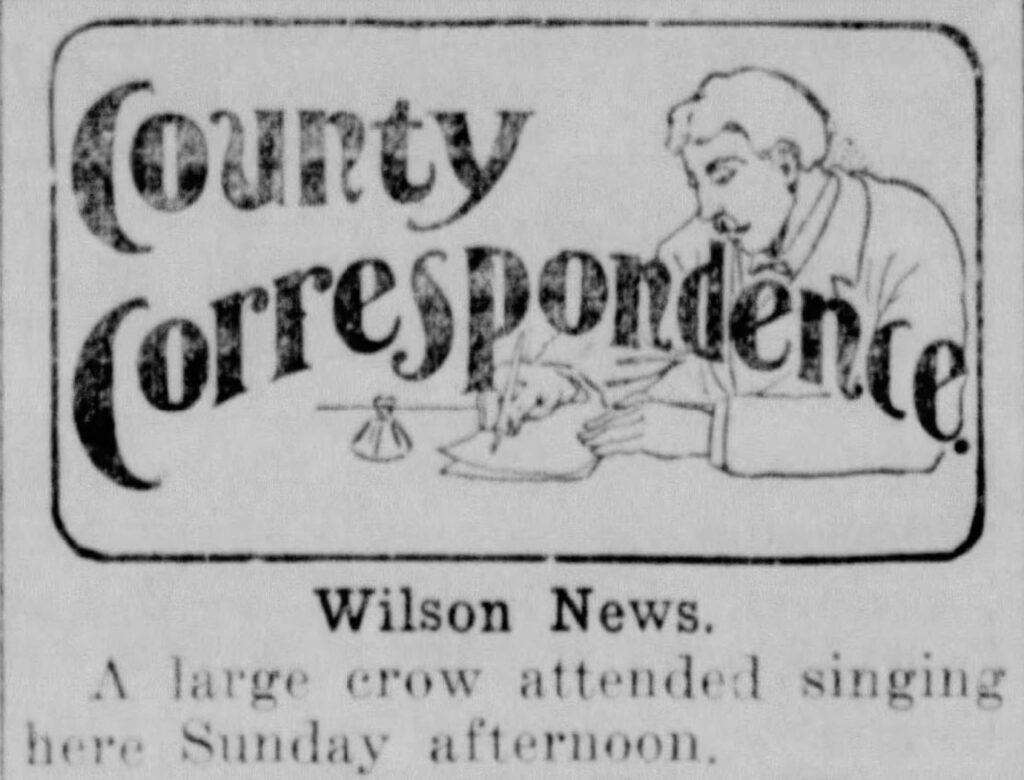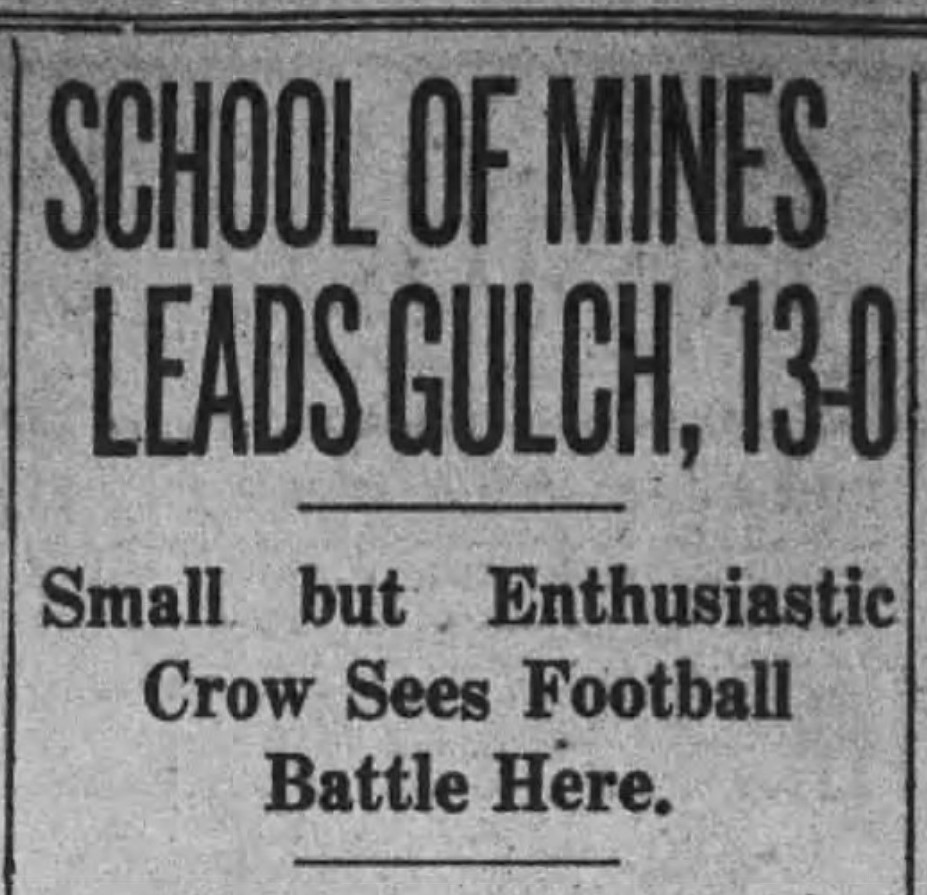Ethel Smyth? William Booth? C. S. Lewis? W. H. Auden? Benjamin Harrison? Anonymous?

Question for Quote Investigator: Newspapers have produced hilarious statements due to misprints. According to an entertaining anecdote, a prominent religious figure once visited a town, and the local periodical reported:
After his train had left the station a large crow remained on the platform for half an hour singing ‘Rock of Ages.’
I do not know if this tale is accurate. Would you please explore instances of the crow/crowd misprint?
Reply from Quote Investigator: Newspapers do occasionally substitute the word “crow” for “crowd”. Here is an overview listing examples. The word “verified” appears adjacent to genuine mistakes that occurred in newspapers. The word “unverified” labels instances that were described in newspapers and books. These instances might have been jokes instead of genuine mistakes.
1891: Verified: An enthusiastic crow at the station gave three rousing cheers as the train drew out
1899: Verified: A lively scrap and large, enthusiastic crows at each game made them very gingerful
1913: Verified: A large crow attended singing here Sunday afternoon
1916: Verified: A large crow remained, evidently with the expectation that an early verdict would be returned.
1919: Unverified: A large crow remained on the platform for half an hour singing ‘Rock of Ages’
1933: Verified: Small but Enthusiastic Crow Sees Football Battle Here
1950: Unverified: At the conclusion of the exercises, a large crow remained in the hall, singing ‘Abide with Me’
1986: Unverified: A large crow remained on the platform singing lustily “God be with you till we meet again”
1997: Unverified: Welcomed by ‘a small but enthusiastic crow’
Below are details for selected citations in chronological order.
In 1891 U.S. President Benjamin Harrison visited San Diego, California. The “St. Louis Globe-Democrat” of Missouri reported that a crowd watched and cheered as Harrison’s train departed for Riverside, California. However, the newspaper mistakenly printed “crow” instead of “crowd”. Boldface added to excerpts by QI:1
At 11 o’clock the train left for Riverside. An enthusiastic crow at the station gave three rousing cheers as the train drew out.

In 1899 “The Scranton Tribune” of Pennsylvania published an article about a minor league baseball match which contained an instance of the misprint under examination:2
Scranton lost yesterday to its old-time rivals, the Barons, but there was consolation in the fact that defeat in neither case was disgrace, both games being closely contested. A lively scrap and large, enthusiastic crows at each game made them very gingerful.

In 1913 “The Comanche Chief” newspaper of Comanche, Texas printed a column that referred to a local event with singing. The piece included the crow/crowd misprint:3
A large crow attended singing here Sunday afternoon.

In 1916 the “Lewiston Saturday Journal” of Maine published an article about a murder trial which included the misprint:4
The jury was still deliberating at one o’clock. A large crow remained, evidently with the expectation that an early verdict would be returned.

In 1919 English composer Ethel Smyth published the second volume of her memoirs titled “Impressions That Remained”. She described attending a luncheon at Lambeth Palace in 1889 with her friend Mary Benson and Archbishop Edward Benson. Smyth began to tell a story about a misprint, but she hesitated because she feared it might be displeasing. In the following passage the name General Booth referred to William Booth who was one of the founders of the Salvation Army. The ellipsis below appeared in the original text:5
After a few bad moments the conversation had turned to printers’ errors—as well it might in a family, six out of the seven members of which were authors—and I had got as far as saying I had recently read about a printer’s error, merely the omission of a final ‘d,’ that really was . . . and here I stopped, overcome with misgiving. But there was no disobeying His Grace’s acid-affable: ‘Pray let us hear the case in question,’ and with death in my soul I told them how a local newspaper had stated in connection with a recent visit from General Booth, that after his train had left the station a large crow remained on the platform for half an hour singing ‘Rock of Ages.’
QI has not yet found this particular version of the misprint in a newspaper published before Smyth’s memoir. This misprint is mentioned after 1919, but QI conjectures that these instances were derived directly or indirectly from Smyth’s memoir.
For example, in 1920 the “Sheffield Daily Telegraph” of Yorkshire, England printed a “Church Topics” column which included a version of the tale from Smyth’s memoir:6
… a local newspaper had stated in connection with a recent visit from General Booth, that after his train had left the station a large crow remained on the platform for half-an-hour singing “Rock of Ages.”
In 1924 the “South Gloucestershire Gazette” of Bristol, England printed an instance of the anecdote:7
A Printer’s Error.—After a recent visit of a well-known Evangelist, a local newspaper stated that “after his train had left the station a large “crow” remained on the platform for half-an-hour singing “Rock of Ages.”
In 1928 “The Hartford Courant” of Connecticut printed a version of the anecdote which highlighted the misprint. The duration of singing was lengthened to two hours:8
“A rather good compositor’s error, comes from America.” chuckles Mr. Asquith. “It ends a description of a revivalist meeting:
“‘The meeting then broke up, but a large crow (crowd?) remained on the platform and sang lustily, “Rock of Ages,” for two hours.’”
In 1933 the “Tyrone Daily Herald” of Pennsylvania printed the anecdote:9
Printer’s Slip—When the distinguished guest’s train left the station, a large “crow” was on the platform singing “Rock of Ages.”

In 1933 “The Butte Daily Post” of Montana printed a subheading which contained an instance of the misprint:10
Small but Enthusiastic Crow Sees Football Battle Here

The collected letters of the prominent English fantasy author and lay theologian C. S. Lewis included a 1950 missive from Lewis presenting a version of the anecdote which he learned about from his brother:11
I never read the papers, and would not have known anything about it except for my brother, who kindly reads me out the more cheerful extracts at breakfast. However, I am grateful to him for one excerpt from yesterday’s paper–a delicious printer’s error in a description of a revivalist meeting in the Midlands:–‘At the conclusion of the exercises, a large CROW remained in the hall, singing Abide with Me’.
The anecdote continued to circulate in 1986 when a version appeared in “The Irish Times” of Dublin, Ireland:12
… on reading of one of the revival meetings of General Booth of the Salvation Army in Manchester, she had taken the report quite seriously for a moment when it stated that, as his train steamed out, a large crow remained on the platform singing lustily “God be with you till we meet again”. Coming to herself, she suddenly realised that “crow” was a printer’s error — he had dropped the final “d”.
In 1999 “The Cassell Dictionary of Anecdotes” edited by Nigel Rees included a tale recounted in 1997 about the British-American poet W. H. Auden:13
W. H. Auden, the distinguished poet, had made a visit somewhere. The local newspaper reporting this said that Mr Auden had stepped from the train and been welcomed by ‘a small but enthusiastic crow’.
Recounted by Nigel Barley on BBC Radio Quote…Unquote (17 June 1997).
In conclusion, a genuine and humorous instance of this misprint occurred in the “St. Louis Globe-Democrat” of Missouri on April 24, 1891. Other genuine instances have occurred during the 20th and 21st centuries. The tale told by Ethel Smyth about William Booth might be genuine, but QI has not yet found a newspaper clipping supporting the story. The tale about Auden might also be genuine, but the supporting clipping remains undiscovered.
Image Notes: Illustration of a crow from GDJ at Pixabay. The image has been resized.
Acknowledgement: Great thanks to quotation expert Nigel Rees whose “Quote…Unquote” newsletter issues dated April 2024 and July 2024 discussed this topic. Yvette Brown asked about the W. H. Auden anecdote. Paul Drayton pointed to the anecdote told by Ethel Smyth. The newsletter articles inspired QI to formulate this question and perform this exploration. Thanks to Dale Sheldon-Hess for helping with the selection of the crow picture. All errors are the responsibility of QI.
- 1891 April 24, St. Louis Globe-Democrat, The President: He Is Enjoying the Pleasing Hospitality of California, Quote Page 2, Column 4, St. Louis, Missouri. (Newspapers_com) ↩︎
- 1899 May 31, The Scranton Tribune, Games Played In Atlantic League, Quote Page 2, Column 1, Scranton, Pennsylvania. (Newspapers_com) ↩︎
- 1913 June 13, The Comanche Chief, County Correspondence: Wilson News, Quote Page 4, Column 4, Comanche, Texas. (Newspapers_com) ↩︎
- 1916 February 5, Lewiston Saturday Journal, Mohr Murder Trial (continuation title), Quote Page 16, Column 8, Lewiston, Maine. (Newspapers_com) ↩︎
- 1919, Impressions That Remained: Memoirs by Ethel Smyth, Volume 2 of 2, Chapter 40: Summer 1889, Quote Page 192, Longmans, Green, and Company, London. (Google Books Full View) link ↩︎
- 1920 April 23, Sheffield Daily Telegraph, Church Topics: The Coming Lambeth Conference, Quote Page 2, Column 5, Yorkshire, England. (British Newspaper Archive) ↩︎
- 1924 March 1, South Gloucestershire Gazette, A Printer’s Error, Quote Page 3, Column 3, Bristol, England. (British Newspaper Archive) ↩︎
- 1928 September 16, The Hartford Courant, Stories of the Famous by W. Orton Tewson, Quote Page E7, Column 4, Hartford, Connecticut. (Newspapers_com) ↩︎
- 1933 September 29, Tyrone Daily Herald, Printer’s Slip, Quote Page 6, Column 8, Tyrone, Pennsylvania. (Newspapers_com) ↩︎
- 1933 November 18, The Butte Daily Post, School of Mines Leads Gulch, 13-0, Quote Page 8, Column 6, Butte, Montana. (Newspapers_com) ↩︎
- 2007 Copyright, The Collected Letters of C. S. Lewis: 1950-1963, Volume 3, Edited by Walter Hooper, Chapter: 1950, Letter From: C. S. Lewis, Letter To: Vera Mathews, Letter Date: November 20, 1950, Quote Page 63, HarperCollins Publishers, New York. (Google Books Preview) ↩︎
- 1986 March 27, The Irish Times, In Time’s Eye: Singing Crow by Y, Quote Page 9, Column 7, Dublin, Ireland. (Verified with scans) ↩︎
- 1999, The Cassell Dictionary of Anecdotes, Edited by Nigel Rees, Topic: Misprints, Quote Page 159, Column 1, Cassell, London. (Verified with scans) ↩︎